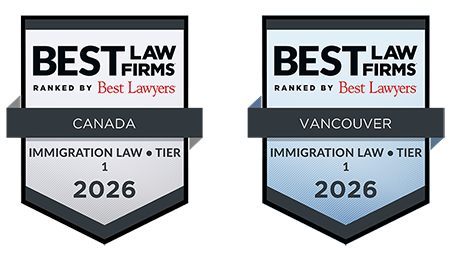We are more and more frequently being consulted by individuals seeking advice as to how to remedy their situations in Canada where they have received improper or even illegal advice from immigration professionals. Frequently, the circumstances facing the individuals coming to see us are due to unreasonable expectations about how to remain in Canada or obtain status that is not generally permitted. Here are some of the current and common situations that we see facing our clients on a regular basis and that can be avoided.
Coming to Canada as a visitor and then applying for a work permit
Currently this is a very common practice. Individuals come to Canada as visitors and then go to the port of entry (border) to apply for a work permit to be able to remain in Canada. Often this is the intended plan before arriving in Canada. However, at the time of applying for the visitor visa overseas to come to Canada, the applicant makes no mention that they intend to work in Canada. CBSA officers at the port of entry (POE) are now routinely making findings of misrepresentation with a five year prohibition of entry to Canada. The basis of this finding is that the individual applicant did not disclose to IRCC when they applied for their visitor visa that they intended to work in Canada.
Many immigration consultants are recommending that individuals come to Canada first and then sort out their work permit status once they are in Canada. This is not sound advice if the intention was always to work in Canada, and individuals are strongly urged to make such applications from the visa office responsible for their home country.
Seeking work in Canada and later applying for permanent residence
Naturally, many individuals become interested in applying for permanent residence after spending some time working in Canada. For many people, that was the original goal for coming to work in Canada in the first place, knowing that they will not qualify for permanent residence without first gaining Canadian work experience or the support of a Canadian employer through programs such as the Provincial Nominee Programs.
Due to these pressures to work in Canada, we have been consulted by individuals who apply for work permits claiming that they have experience or certain training and education in the job they have been offered. However, that experience and training is often false or exaggerated which is done in order to show that the person can successfully perform the job that has been offered. This typically occurs when a person has a job offer supported by a Labour Market Impact Assessment or “LMIA” which requires that a person show a certain level of education and/or work experience to be able to get a work permit.
While providing false or exaggerated information that may help somebody obtain a work permit, any misleading information provided in an initial work permit application will jeopardize their future applications, even when applying for permanent residence, because IRCC will find that they have committed misrepresentation. Furthermore, it is also not uncommon to find situations where a person has provided misleading information sufficient to obtain a work permit but not to qualify for permanent residence and they become stuck in a cycle of providing more misleading information to achieve their goals. Immigration officers have access to information you have provided in earlier applications and often discover discrepancies that lead to misrepresentation findings.
“My immigration professional told me that I could do this!”
We hear this all the time. People routinely tell us that their immigration representative promised them things or advised them to do things that they acknowledge are not proper. Examples of such actions include (but are not limited to): signing blank forms, providing inaccurate or blatantly false information, omitting essential documents, not being candid about their personal circumstances (ie. marriage, children, criminality). Really the breadth of this topic is endless. But at the end of the day, your immigration application is exactly that – YOURS! You can’t simply point a finger at your immigration professional and say that they told you to do something wrong – especially when you know that it is wrong. Notwithstanding that you have hired and paid for an immigration representative, IRCC will hold you responsible for any inaccurate information in your immigration application.
If it looks like a scam and smells like a scam, and sounds too good to be true, it probably is a scam!
All the current problems we are seeing as immigration professionals share a common thread that immigration applicants are not taking enough responsibility for their own immigration matters. Whether applying for temporary or permanent entry to Canada, applicants should know that there are no shortcuts to achieving your desired immigration goals. You should prepare in advance to understand what immigration programs you would qualify for and what type of documents you need to provide to be successful, and you need to be consistent throughout each and every immigration application you make whether from inside or outside of Canada for temporary or permanent resident status. Get a second or third opinion from a wide variety of qualified and competent representatives. As you are preparing your application you must remember that you are always required to provide truthful information. Any untruthful responses whether provided by you or any other person on your behalf can, and likely will, result in a finding of misrepresentation and bar you from applying to come to Canada for a period of 5 years. Taking control of your own immigration matters from the outset will help you avoid immigration crises in the future.






